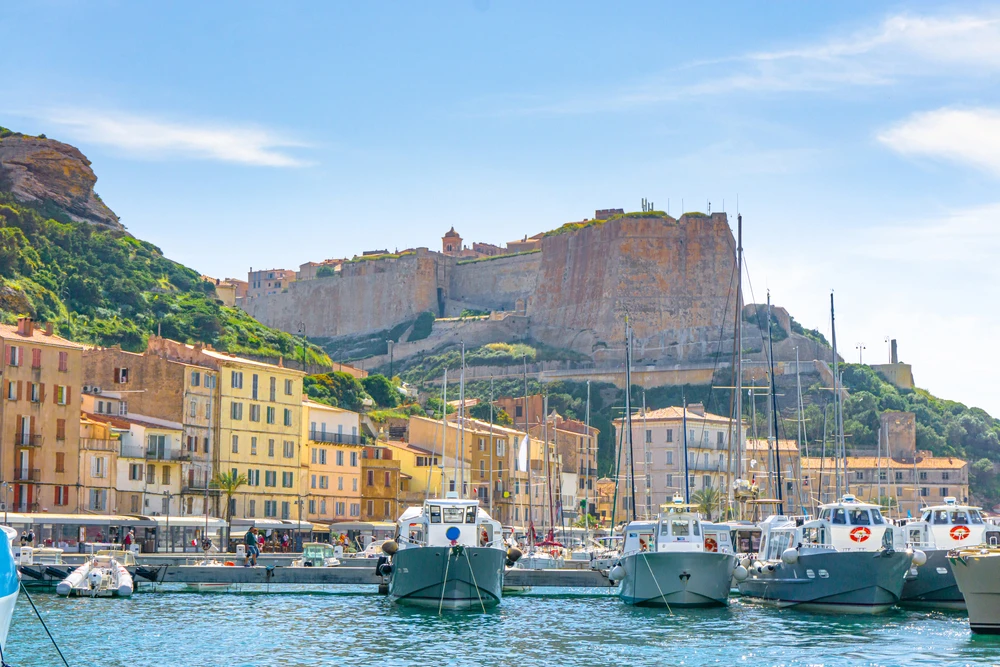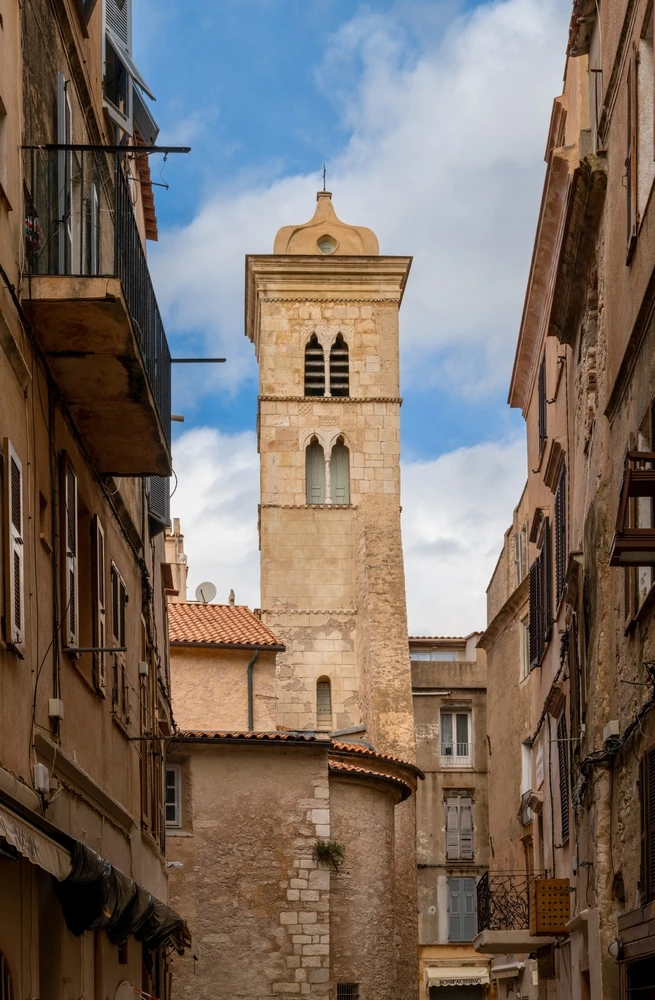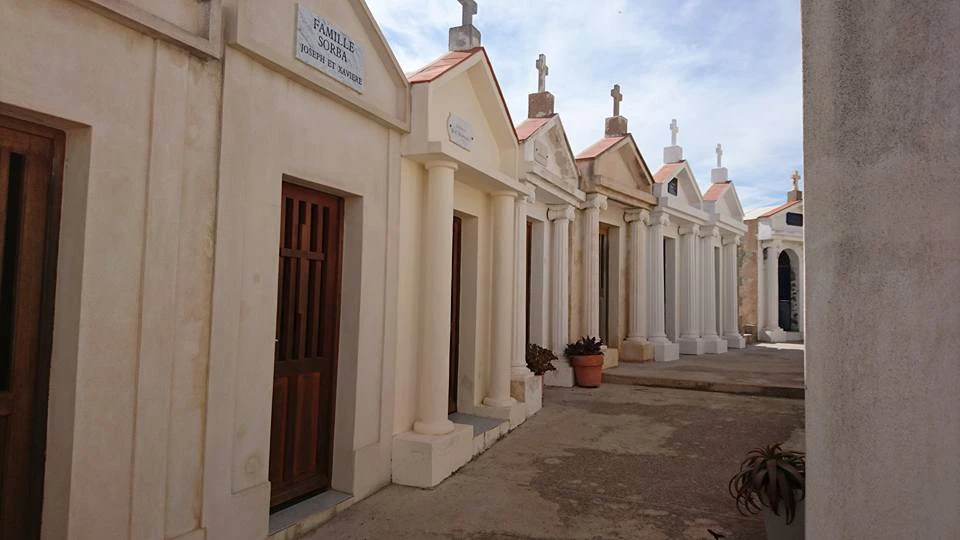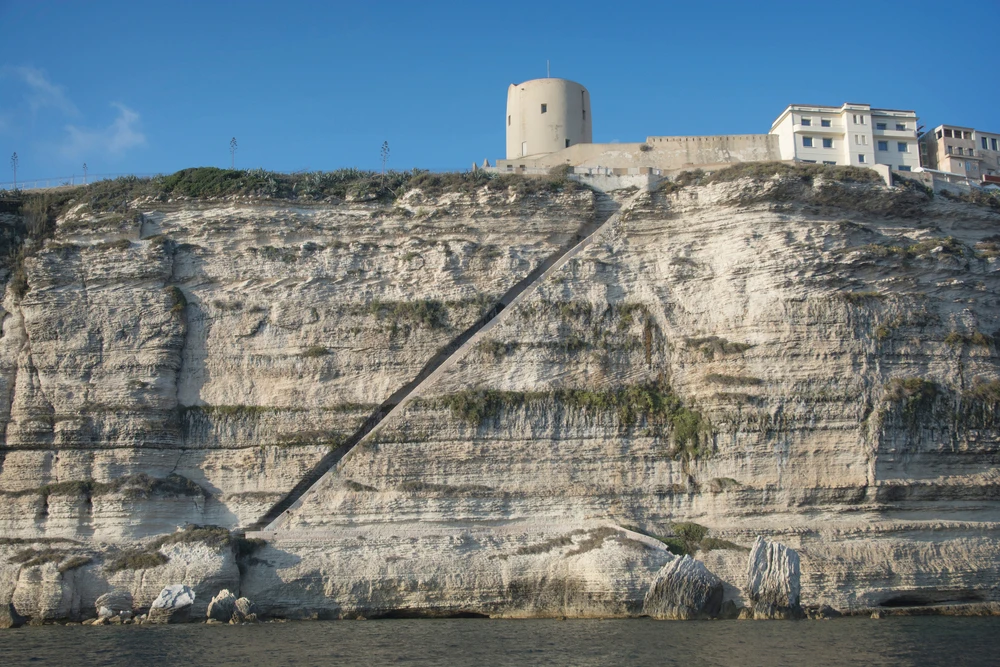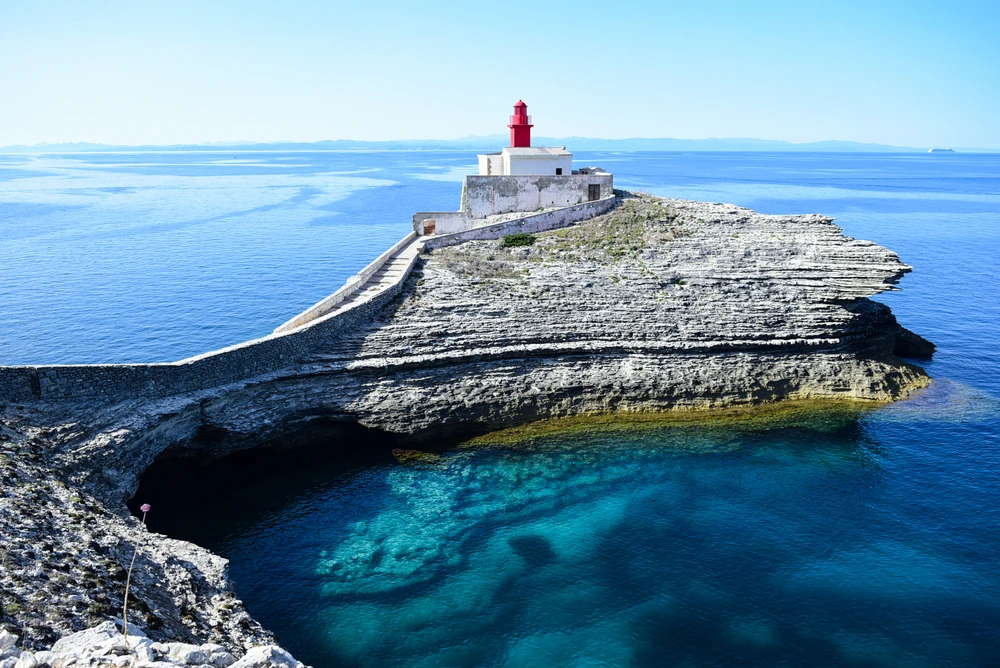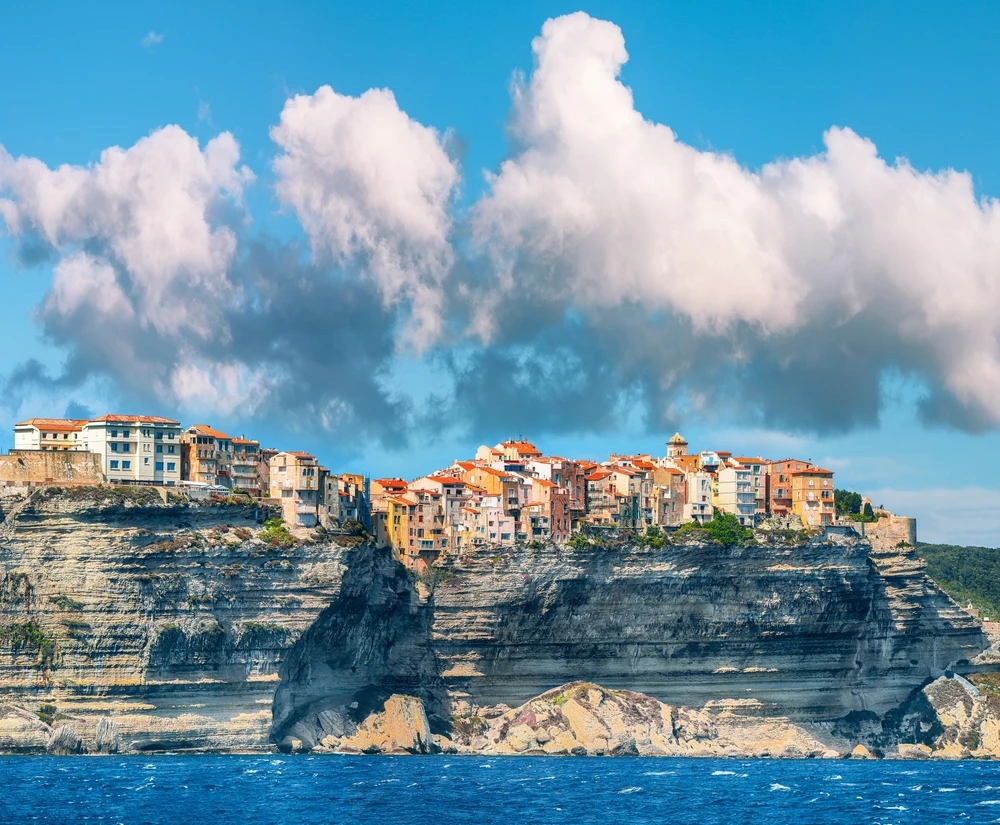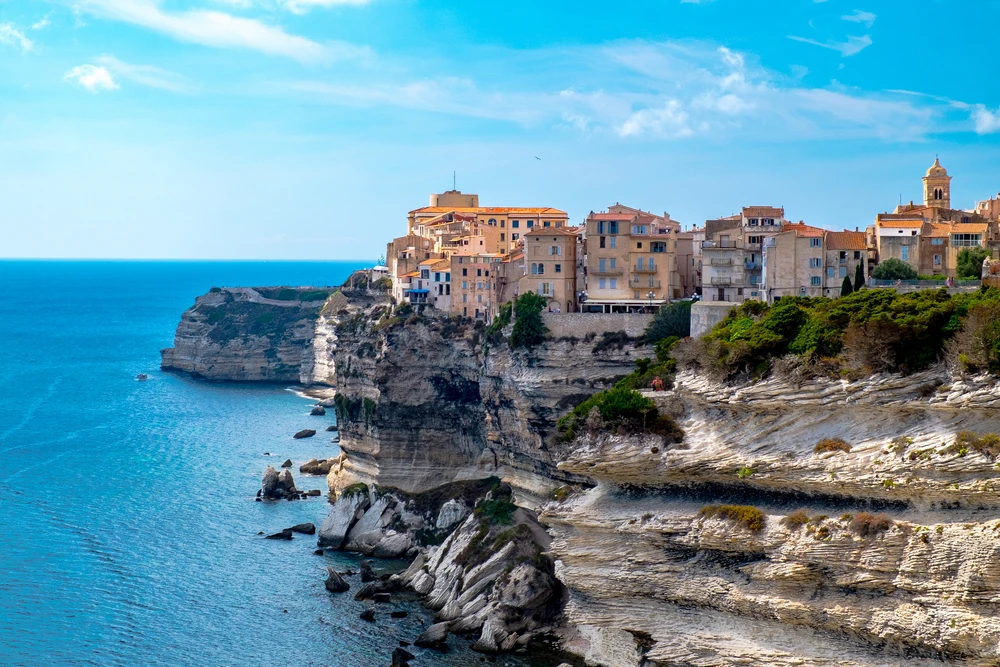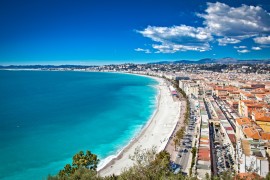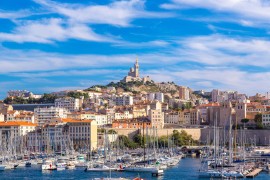Brief history of Bonifacio
A city of history
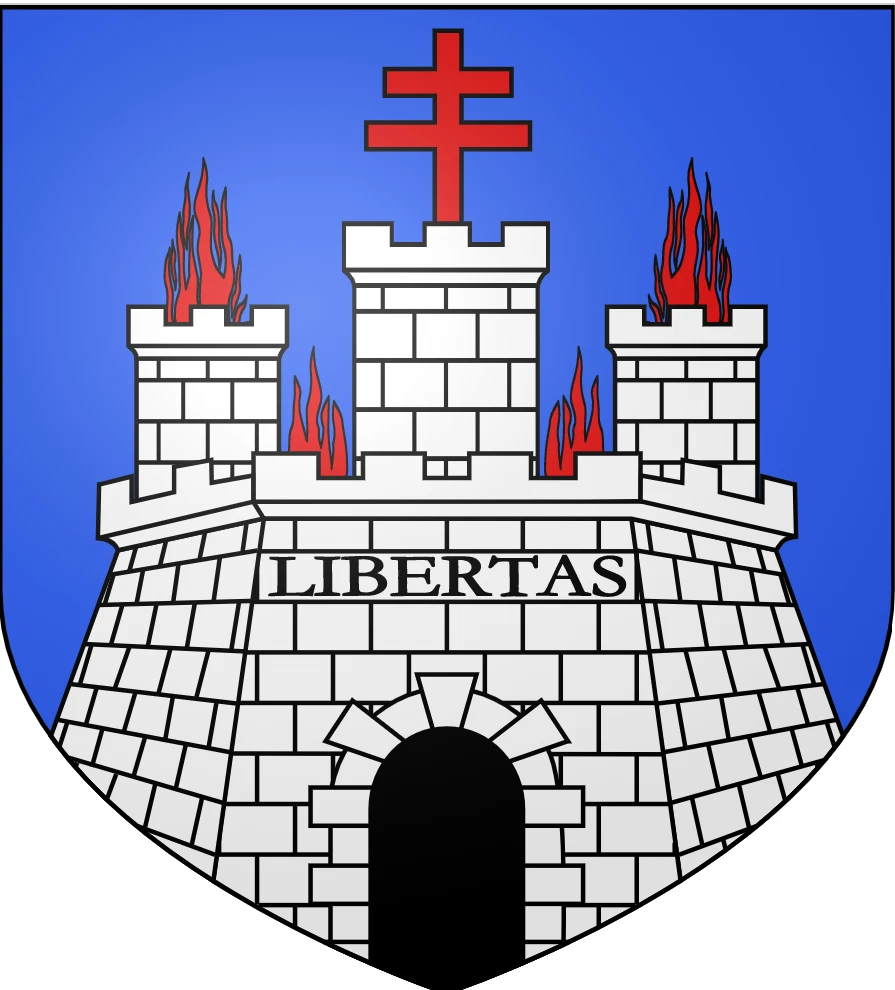
The coat of arms of the city of Bonifacio. Image chosen by monsieurdefrance.com: By Tretinville - Personal work, CC BY-SA 3.0, https://commons.wikimedia.org/w/index.php?curid=23084862
We don't know when the city of Bonifacio was founded, but we do know that men have always been present on this southern tip of Corsica, facing Sardinia, especially the Romans in the city of Pallae, not far away. However, its foundation is attributed to Boniface II of Tuscany "Count of Corsica" around the year 828 to fight against the Saracens. He probably founded the fortress before going to fight to Carthage. A warlord who left a frightening memory to his enemies. He left his name to the city born from the fortress he founded and which has faced the centuries...
A fortress and a trading port
Disputed between Pisa and Genoa, Bonifacio became Genoese in the 12th century, which explains why the local language, Bonifacian, is of Ligurian origin.
The fortress of Bonifacio. Picture chosen by Monsieurdefrance.com : MIKISTOCKER/shutterstock.Com
It is almost not spoken anymore and it is nicknamed "the language with 150 speakers". French and Corsican have imposed themselves in the city which was for a long time Genoese and which has known an eventful history. Taken, taken back, it has gone through a really rough 16th century for it. It was attacked by Alphonse of Aragon, whose legend tells us that the soldiers tried to take the city by digging, in one night, the staircase which goes up the cliff from the waves (it is in fact the work of monks wishing to reach a source). The plague literally ravaged the city at the same time, leaving only a handful of inhabitants (and the memory of a terrible moment through the chapel of Saint Roch erected in the city, Saint Roch being the saint prayed against the plague). Shortly after the epidemic, the city was taken by the Turkish corsair Dragut (dragon), taken by France also a few years later, then returned to the Republic of Genoa in 1559 before being taken back by France in 1769.
What to see:
The upper city of bonifacio
Get your calves ready! The city of Bonifacio is in height. To reach it you will have to climb many steps. When you rent a house in the upper town, you should not forget to buy bread... The city is not very big (3204 Bonifacians) but it is made of small streets full of old houses, aristocrats' mansions. You can find many restaurants. To be seen, the city gates and the ramparts of which you can walk through a part, the street of the 2 emperors, the street Doria... The church of Sainte Marie Majeure can be visited with pleasure. To see also the convent Saint François.
The bell tower of the church Saint Marie Majeure of Bonifacio makasana photo/ photo chosen by Monsieurdefrance.com /shutterstock.Com
The port of Bonifacio
It is a very lively place. Further along the water towards the city, you can find souvenirs and small restaurants.
The marine cemetery of Bonifacio
This is one of the most beautiful cemeteries in France, along with the cemetery of Sète. It is a seaside cemetery, with sometimes very ornamented tombs, and it also offers a vast view. Immanquable really (and one visits with respect).
Le cimetière marin de Bonifacio / Photo choisie par Monsieurdefrance.com : Jérôme Prod'homme.
The staircase of the king of Aragon
Carved in the cliff. It has 147 steps, some of which are very high. It is a real sport moment (and caution) to go down and up it but it is a beautiful experience and, again, the view is splendid. A legend attributes it to the will of King Alfonso of Aragon to take the city. More likely, it would have been cut in the rock to allow access to a spring.
Amazing staircase of the king of Aragon in Bonifacio photo chosen by Monsieurdefrance.com SingerGM /shutterstock.Com
The paths around Bonifacio
The countryside is all around Bonifacio. There are many paths, especially in front of the city, and you can walk along the coast with happiness. Some itineraries are marked out. Well-made maps are available at the tourist office.
The lighthouse of the Madoneta
Red, dominating the water, it was built in 1854.
Since 1854, the Madoneta lighthouse watches over the sailors at sea in Bonifacio photo chosen by Monsieurdefrance.com Eugenie Photography/shutterstock.Com
The lavezzis islands.
Small, deserted, they are worth a visit just for the pleasure of seeing Bonifacio from the sea, which is, without a doubt, the best point of view on this amazing city suspended above the waves.
The view that you will have on the city of Bonifacio when you come back from the Lavezzi islands. photo chosen by Monsieurdefrance.com Andrea Sirri/shutterstock.Com
Infos / Geo / Web :
Bonifacio is populated by 3200 Bonifacians. It is located in Corsica and it depends on the Unique Territorial Collectivity of Corsica. All languages are spoken there but especially French, Corsican and Bonifacian.
Bonifacio the city suspended between land and sea. photo chosen by Monsieurdefrance.com Andrea Sirri/shutterstock.Com
Geography:
Bonifacio is located 27 km from Porto-Vecchio, 130 km from Bastia and 130 km from Ajaccio and ... 12 kms from Sardinia (which is easily connected by boat from the port). It is in the south of the island of Corsica.
Nearest airport:
You can go to Bonifacio by plane by choosing the airport of Figari. Departures from Nantes, Paris, Bordeaux, Caen, Strasbourg... Discover the accessible cities on the airport's website. (website in french).
Train station :
There is no train station in Bonifacio. But there is a ferry terminal (especially to go to Sardinia).
Parking :
Please note that parking is not free. Parking lots are located at various points in the city. Don't forget to ask for the rate when you rent in Bonifacio (one week can be expensive).
Tourist office and tourism links
The website of the tourist office of Bonifacio is here .
To visit Corsica it is here.

